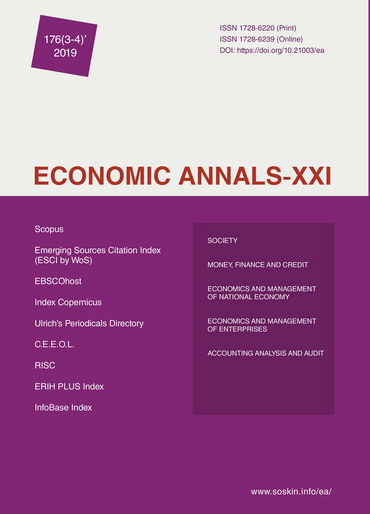Empirical model of congruence of mental space as a tool for the analysis of changes in international relations
Empirical model of congruence of mental space as a tool for the analysis of changes in international relations
Author(s): Igor Ishchenko, Olena Bashkeieva, Pavlo PetrovSubject(s): International relations/trade
Published by: Institute of Society Transformation
Keywords: Mental Space; Mental Construct; Interaction; Environment; Congruent Interference; Influence; Distrust; Black Swan; Network; Public Opinion; President;
Summary/Abstract: Recently, we have observed a lack of modern research on the question of the practical realisation of the mental space concept. This determines the topicality of the authors’ research. The article studies the multiple ways of development of international economic and political relations, based on an empirical model of interaction of mental spaces. The authors of the article have developed an empirical model on the basis of a formula containing (in a codified form) an imbalance of mental constructs of the basic political and institutional structures and the environment. The concepts of «congruent interference» and «non-congruent interference» of mental constructs have been introduced. The mental space consists of a dynamic unity of mental constructs. The present research is based on the following empirical models: the political process (introduced by Donald Morrison and Hugh Stevenson) and the mass instability (developed by Ted Gurr). It has been shown that such an integrated approach makes a new concept topical, being the imbalance of the mental construct. It is calculated as the sum of four elements such as the level of realisation of individual values of the public environment as a result of the implementation of foreign policy, the level of realisation of basic political institutional structure values connected with the social environment, the emotional factor of the basic political institutional structures interacting with the social environment, and compensatory resources. The authors have presented prospective methods of influencing the mental space, given the current trends in the development of information and social networks, where the black swan effect is crucial in the information field. In terms of modern conditions, this effect is associated with the emergence of unforeseen actors capable of changing the public opinion. These are the public opinion leaders. The manipulation of social networks has been emphasised among the methods of influence. A method based on creating groups, public pages and channels for interpreting the events has been shown. It is also noted that the successful interaction of states is possible thanks to the congruent interference of their mental spaces. The reason for the deterioration of relations between them is the imbalance of mental constructs and spaces in general, resulting in the political instability. The given model can be successfully used for analysing and forecasting not only the development of international relations and making alterations to the foreign policy. It is obvious that the scope of its application can include as well the renewed trust to the candidates seeking elections, the managers at any level and the like. In fact, the quality of the social relations between the two subjects can be shown in accordance with the abovementioned model.
Journal: Економічний часопис - ХХІ
- Issue Year: 176/2019
- Issue No: 3-4
- Page Range: 4-12
- Page Count: 9
- Language: English

